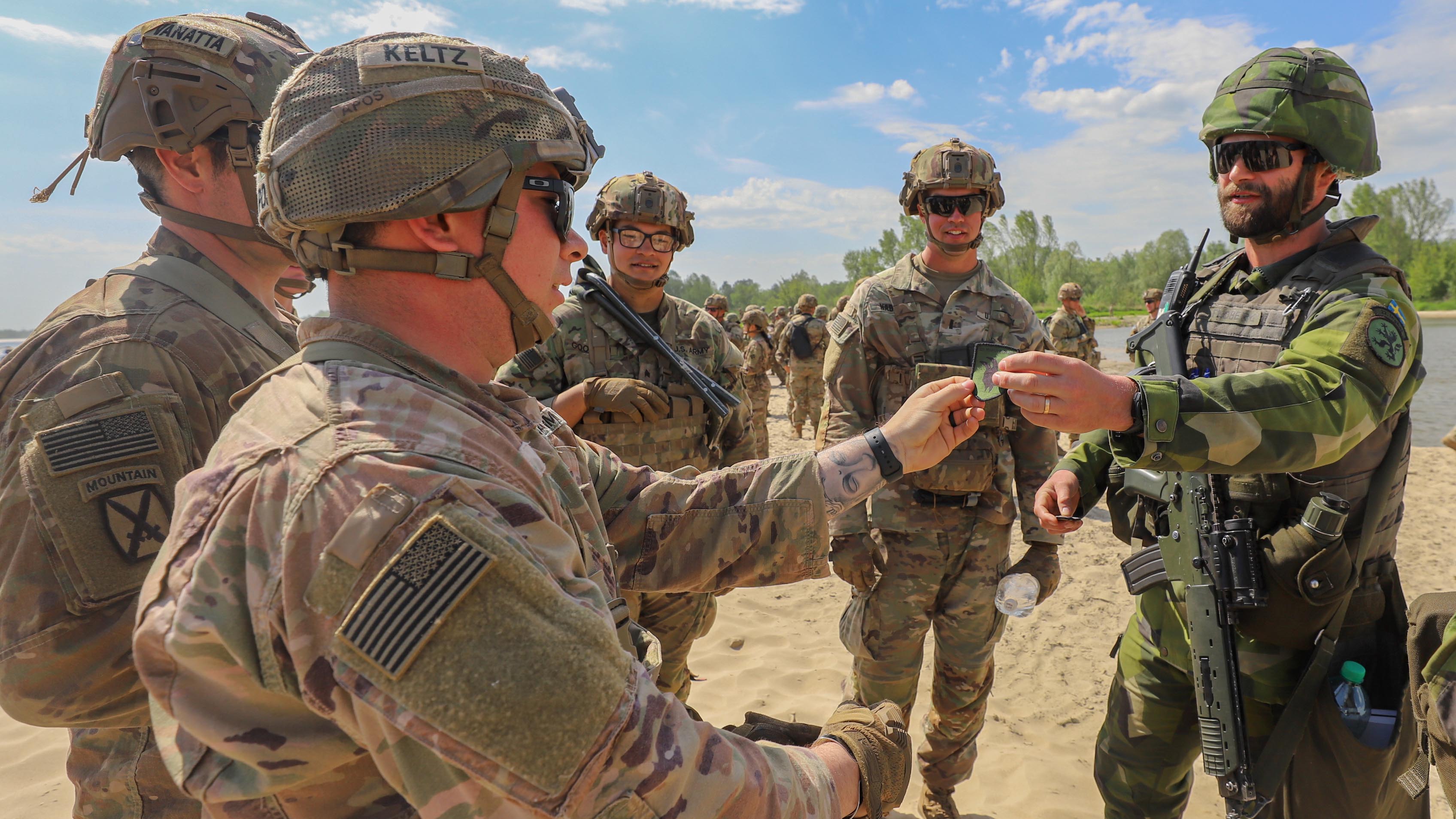Reassuring NATO is Key US Army Role
Reassuring NATO is Key US Army Role

American soldiers continue to reassure NATO allies and partners in Europe as the war in Ukraine grinds on and the potential for miscalculation continues to threaten the region.
Speaking one day after a missile strike killed two people in Poland, Army Chief of Staff Gen. James McConville warned that a regional conflict carries global implications.
“In this case, there was certainly a lot of concern about what happened,” McConville said about the missile strike during Politico’s 2022 Defense Summit. The key, he said, is to “remain calm” and “react with the speed of relevance.”
A day after the Nov. 15 strike, Polish and NATO leaders said they believe the strike was unintentional and likely was launched by air defenses in neighboring Ukraine—and not Russia, the Associated Press reported.
As the U.S. continues to provide support, the Ukrainians have shown they have the capability, capacity and competence to fight on the battlefield, McConville said. Most importantly, however, is their will to fight, he said.
“They’re very, very committed to what they’re doing,” McConville said. “Our role in the Army … is to provide them with the weapons and ammunition they need, along with the training and the support. They’re very serious about what they’re doing, and they’re very committed.”
The U.S. Army is learning a lot from the war in Ukraine, McConville said. As an example, unmanned aerial systems are a “real threat” to all, he said. “It’s something we’re very concerned with and we’re aggressively getting after,” he said. “Defeating those unmanned aerial systems is very important.”
Leaders also are learning how much artillery and how many weapons systems are needed when “you’re involved in a large-scale combat operation like we’re seeing in Ukraine,” McConville said.
The Army also is applying lessons learned in Europe to deterrence in the Indo-Pacific, where China is America’s “pacing challenge.”
“We’re seeing the importance of doing long-range targeting and long-range fires,” McConville said. Also important are air and missile defense and logistics, he said.
“If you don’t have gas, ammunition, parts, those weapons systems become very ineffective,” he said. ‘If you’re going to prosecute a war or a conflict, you’ve got to have logistics, and you’ve got to have robust logistics to do that.”
One of the things the Army does well is logistics, McConville said, but they take on an added dimension in the vast Indo-Pacific. “There’s a lot of water out there,” he said. “We’re going to work very closely with our joint partners.”
Looking ahead, McConville said he expects the U.S. Army to continue supporting the Ukrainians and America’s NATO partners and allies. “We have sufficient, credible combat power to reassure our allies and partners,” he said, adding that in his visits to the region, many countries are “very, very appreciative of having U.S. soldiers there to support them.”
The Army also continues to conduct training and operations around the world. “We want to be ready,” McConville said. “We want to make sure we have a highly trained and ready Army that’s ready to operate in whatever region we need to go to.”

